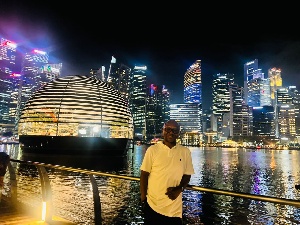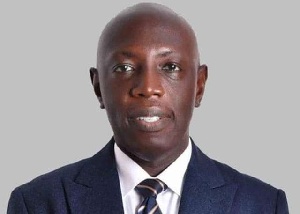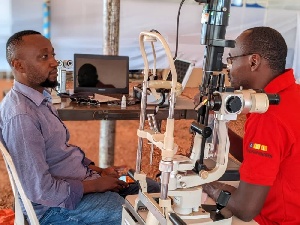- Home - News
- Elections 2024
- News Archive
- Crime & Punishment
- Politics
- Regional
- Editorial
- Health
- Ghanaians Abroad
- Tabloid
- Africa
- Religion
- Photo Archives
- Press Release
General News of Wednesday, 4 June 2025
Source: www.ghanawebbers.com
From 3rd World To 1st World. Why Singapore is ahead & why it would take Ghana up to 70 years to catch up
If Singapore stops developing in 2025, Ghana could take 50 to 70 years to catch up. This is due to several factors.
Singaporeans are generally happier and live longer than Ghanaians. The average life expectancy in Singapore is 86 years. In contrast, Ghana's average life expectancy is only 69 years.
Singapore gained independence from British colonial rule on June 3, 1959. Ghana became independent just over two years earlier. Since then, Singapore has had only three Prime Ministers.
As of March 2025, Singapore's population is about 5.86 million people. The country has been ruled by the People's Action Party since 1965.
Ghana holds elections every four years, but they often yield little improvement. In contrast, Singaporeans focus less on Western-style democracy and more on stability.
The media in Singapore is largely government-controlled but still supports a happy populace. Despite this control, Singaporeans enjoy better living conditions than Ghanaians.
Leadership plays a crucial role in development success. Singapore focused on building a strong economy and high living standards for its citizens.
Lee Kuan Yew led Singapore until 1990 with this vision in mind. Today, their GDP per capita stands at USD 90,674.
In contrast, Ghana often awards contracts to less competent individuals. Corruption remains a significant issue that hampers progress in Ghana.
Singapore boasts world-class infrastructure and efficient public services. Their public transportation system and urban planning are highly regarded globally.
Corruption levels in Singapore are extremely low; officials cannot accept gifts or bribes. This strict policy fosters trust and efficiency within the government.
To estimate how long it might take for Ghana to catch up with Singapore, we can look at key indicators like GDP per capita and human development indices.
As of 2024, Singapore's GDP per capita is around $90,674 while Ghana's is about $2,374 according to the IMF.
If Ghana grows at an annual rate of 5%, it may take about 50-70 years to reach Singapore’s level of GDP per capita.
If growth increases to 7% annually, Ghana could potentially catch up within 40-60 years instead.
Ghana’s Human Development Index (HDI) shows improvement but still lags behind Singapore significantly.
Significant investments are needed in infrastructure, education, and healthcare for Ghana to bridge this gap effectively.
Unlike Ghana, which relies heavily on natural resources like gold and cocoa, Singapore has few natural resources yet thrives economically.
Ghana’s reliance on traditional exports makes it vulnerable to global market fluctuations without economic diversification.
If Ghana addresses its challenges while maintaining steady growth rates, catching up with Singapore will still take decades.
It may be time for a reevaluation of our election cycle in Ghana. Holding too many elections can hinder progress despite our rich human and natural resources.
A proposal could be one seven-year term for presidential elections alongside five-year parliamentary elections.
This change could reduce corruption and allow elected leaders more time to make lasting impacts during their terms.
Entertainment










